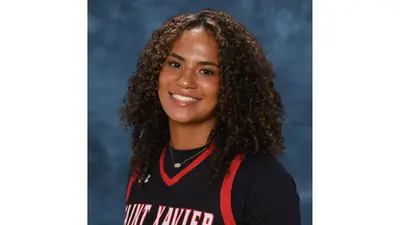City of Sycamore City Council met Sept. 16.
Here is the agenda provided by the council:
1. CALL TO ORDER AND ROLL CALL
2. INVOCATION
3. PLEDGE OF ALLEGIANCE
4. APPROVAL OF AGENDA
5. APPOINTMENTS
6. AUDIENCE TO VISITORS
7. CONSENT AGENDA
A. Approval of the Minutes for the Regular City Council Meeting of September 3, 2019.
B. Payment of the Bills for September 16, 2019.
C. Plan Commission Meeting Minutes from Regular Meeting of August 12, 2019.
8. PRESENTATION OF PETITIONS, COMMUNICATIONS, AND BILLS
9. REPORTS OF OFFICERS
10. REPORTS OF STANDING COMMITTEES
11. PUBLIC HEARINGS—None
12. ORDINANCES
A. Ordinance No. 2019.20—An Ordinance Amending Title 9, “Building Regulations,” of the City Code of City of Sycamore to Adopt the 2015 International Building Code, the 2015 International Residential Code for One and Two-Family Dwellings, the 2015 International Fire Code, the 2015 International Plumbing Code, the 2015 International Mechanical Code, the 2015 International Fuel and Gas Code, the 2015 International Pool and Spa Code, the 2015 International Existing Building Code, the 2015 International Property Maintenance Code and the 2014 National Electrical Code and Modify the 2014 Illinois Plumbing Code in the City Code of the City of Sycamore, Illinois. Second Reading.
Ordinance 2019.20 replaces Title 9, “Building Regulations,” of the City Code to adopt the 2015 International Code Series. These codes, which regulate building construction and fire prevention were last updated in 2008. In recent years, DeKalb County and the City of DeKalb adopted the 2015 International Codes, which when adopted, would make the process more consistent and user friendly for those doing construction in the Sycamore-DeKalb area.
The City’s Building and Engineering Department prepared a list of significant changes (attached) for each of the respective codes. These changes have been communicated to local contractors and builders, who through the DeKalb County Builders and Developers Association, have indicated support for the adoption of the 2015 code series.
Among the notable changes are:
9-1-2: Restroom Facility: Outlines the requirement for restroom facilities on construction sites in accordance with the Illinois Construction Site Temporary Restroom Facility Act (410 ILCS 37/1).
9-1-3: Construction Hours: Includes an excerpt from Chapter 5-4-15, Noise Regulations that outlines regulations for construction hours.
9-2-3: Re-inspection Fees: Increases the fee for re-inspections from $50.00 to $100.00. 9-2-4: Occupancy Inspection Fees: Clarifies that:
A. Any temporary certificate of occupancy that is issued with an expiration date of one (1) month or more from the date of inspection shall be assessed a One Hundred Dollar ($100.00) re-inspection fee in accordance with Chapter 9-2-3.
B. Illegal Occupancy: In the event a structure is occupied before a Certificate of Occupancy has been issued, the permit applicant shall be fined not less than Two Hundred Fifty Dollars ($250.00) per day for each day the structure is illegally occupied.
9-3: Contractor Requirements: Outlines registration and licensing requirements for Electrical Contractors, Plumbing Contractors, Roofing Contractors, Private Alarm Contractors, Fire Sprinkler Contractors and Irrigation Contractors performing work within the City.
9-4.A: Building Code Adopted and 9-4.B: Amendments: Outlines all adopted codes and local amendments to the following codes:
9-4-2: International Building Code
9-4-3: International Residential Code for One-and Two-Family Dwellings
9-4-4: International Fire Code
9-4-5: International Plumbing Code
9-4-6: International Mechanical Code
9-4-7: International Fuel Gas Code
9-4-8: International Swimming Pool and Spa Code
9-4-9: International Existing Building Code
9-4-10: International Property Maintenance Code
9-4-11: National Electrical Code
9-4-12: Illinois Plumbing Code
9-4.C: Enforcing Officers: Outlines who is responsible for enforcing the various adopted codes.
9-4-3: International Residential Code for One and Two-Family Dwellings: Section R313, Automatic Fire Sprinkler Systems: An automatic fire sprinkler system shall be installed in townhouses and in one and two-family dwellings.
Exception: Buildings which do not exceed two stories above grade with a maximum of six dwelling units per building.
9-5: Accessory Structures: Defines the term “accessory structure”, describes permit requirements and refers the reader to the Unified Development Ordinance, Article 6.2, for all information pertaining to accessory structures.
9-7-7: Inlet Protection: Inlet protection using geotextile fabric only (i.e. a piece of fabric cut and placed under the lid) is not permitted.
Several other sections of the City Code have been modified in conjunction with the adoption of 2015 International Code Series as outlined below in Ordinances 2019.21 through 2019.24.
City Council approval is recommended.
B. Ordinance No. 2019.21—An Ordinance Amending Title 3, “Business and License Regulations,” Chapter 7, “Electrical Contractors,” and Establishing Chapter 25, “Mobile Homes and Mobile Home Parks,” of the City Code of the City of Sycamore, Illinois. Second Reading.
Section 3-7-1, Electrical Contractor Registration Requirement has been updated to outline the registration requirements for Electrical Contractors performing work within the City.
The City Code reference to mobile homes and mobile home parks has been deleted from Title 9, Building Regulations and moved to Title 3, Business and License Regulations with a newly created Chapter 3-25, Mobile Homes and Mobile Home Parks. The majority of the code language discusses licensing of mobile homes and mobile home parks, making this title the more logical fit.
City Council approval is recommended.
C. Ordinance No. 2019.22—An Ordinance Amending Title 4, “Public Health and Safety,” Chapter 3, “Nuisances,” Section 1, “Nuisances Declared,” of the City Code of the City of Sycamore, Illinois. Second Reading.
The section of the City Code that outlines nuisances adds a new section 4-3-1.G.2, Storage of Junk and Building Materials. This includes new language stating that building materials may not be stored in a manner that is offensive to the public health, safety or aesthetics of the neighborhood.
City Council approval is recommended.
D. Ordinance No. 2019.23—An Ordinance Amending Title 5, “Police Regulations,” Chapter 4, “Miscellaneous,” Section 15, “Noise,” of the City Code of the City of Sycamore, Illinois. Second Reading.
Section 5-4-15, “Noise Regulations,” currently outlines noise regulations for construction hours, noise amplification systems, emergency and maintenance operations, special events and community events. While noise is regulated by decibel level, the amended code incorporates hours of operation for construction activity, outdoor music, festivals, special events, etc.
City Council approval is recommended.
E. Ordinance No. 2019.24—An Ordinance Amending Title 8, “Water and Sewer,” Chapter 2, “Water Use and Service,” Section 8, “Taps and Water Service Pipes,” of the City Code of the City of Sycamore, Illinois. Second Reading
No significant changes were made other than to bring this section in line with the change to the 2015 International Code Series.
City Council approval is recommended.
F. Ordinance No. 2019.25—An Ordinance Authorizing a Request by Joel and Halie Howells for a Special Use Permit to Operate a Professional Office at the Property Located at 240 Edward Street in Sycamore, Illinois (PIN 06-32-380-007). First and Second Reading.
Joel and Halie Howells are the owners of Wellspring Center for Counseling, LLC, a therapy practice currently operating in Elgin, Illinois. The couple hopes to operate a second location in Sycamore and have entered into a contract to purchase the property at 240 Edward Street from Ryan and Karen Weckerly.
Wellspring Center for Counseling offers counseling for individuals, families and couples. Initial plans are to have four therapists operate at the location during regular business hours and early evenings. Each therapist works two to four days per week and counsel six to eight clients per day. The petitioners noted that the property can accommodate off-street parking for up to fourteen cars, which will serve current needs while allowing growth potential to utilize the 5+ offices within the property.
To learn more about the company and the services that are offered go to their website at: https://www.wellspringcenterforcounseling.com.
The property in question is zoned residential and has housed Morningstar Media for approximately fifteen years after a special use permit was granted in late 2003. Prior to Morningstar Media occupying the building, it was the home of the Masonic Temple for many years.
In June, an amendment was made to the Unified Development Ordinance (UDO) to make professional offices a special use in R-1, R-2 and R-3 residential districts provided a special use for professional offices previously existed for the property in question.
Professional Office: Shall mean any office used primarily for accounting, engineering, legal, consulting, correspondence, editing, administration and related services.
Per Section 4.3.3 of the City’s Unified Development Ordinance, a Special Use Permit shall be granted only if evidence is presented to establish that:
A. The proposed structure or use at the particular location requested is necessary or desirable to provide a service or a facility which is in the interest of the public and will contribute to the general welfare of the neighborhood or community;
B. The proposed structure or use will not have a substantial adverse effect upon the adjacent property, the character of the neighborhood, traffic conditions, utility facilities and other matters affecting the public health, safety, and general welfare; and
C. The proposed structure or use will be designed, arranged, and operated so as to permit the development and use of neighboring property in accordance with the applicable district regulations.
Staff has reviewed the request and feel that the proposed use does not substantially differ from the previous use when applied against the special use criteria.
A public hearing regarding the Special Use Permit was held at the Planning and Zoning Commission meeting on September 9th after appropriate notice. After considering the special use criteria the Planning and Zoning Commission voted 11-0 to forward a favorable recommendation.
City Council approval is recommended.
13. RESOLUTIONS
14. CONSIDERATIONS
A. Consideration of an Administration Recommendation to Award the Bid for the City’s 2019 Tree Planting Program.
The City opened bids for the 2019 Tree Planting Program on Tuesday, September, 10th. The only bid was submitted from Stran’s Garden Center of Sycamore as shown below:
| Company Name | Address | Bid Amount |
| Stran’s Garden Center | Sycamore, IL | $20,630.00 |
Group A ($436 per tree; $218 cost to residents)
Kentucky Coffee Tree
Group B ($410 per tree; $205 cost to residents)
Skyline Honeylocust
State Street Miyabe Maple
Sienna Glen Maple
Marmo Freeman Maple
Autumn Blaze Maple
Common Hackberry
Princeton Elm
Triumph Elm
Patriot Elm
The type of tree is determined by category and dependent on the proximity to overhead power lines. The bid is for up to 50 trees with no more than 30 of any one variety to be planted to encourage diversity among species. The City pays for 50% of the cost of the tree and planting as part of the program. Staff recommends the program be limited to a maximum of one tree per residence through October 2nd. Orders will be taken at the City Clerk’s Office at which time the resident will receive a stake to be placed in the front yard to indicate the desired location of the tree. Each tree will be planted between October 9th and November 8th and is guaranteed for one year.
Staff has reviewed the bids and recommends award of the contract to Stran’s Garden Center.
City Council approval is recommended.
B. Consideration of the Sycamore Public Library’s Annual Report Presented by Executive Director Monica Dombrowski.
Executive Director Monica Dombrowski will present the annual report summarizing library activities and programs over the past year and plans for the future. The library served 123,371 visitors while producing a balanced budget.
C. Consideration of an Administration Request for Discussion Regarding Recreational Cannabis Dispensaries in the City of Sycamore.
On June 25, 2019, Governor Pritzker signed the Cannabis Regulation and Tax Act into law (Public Act 101-27) legalizing and regulating production, consumption, and sale of cannabis in Illinois. The law is effective on January 1, 2020, and allows persons aged 21 and older to lawfully possess up to 30 grams of raw cannabis, 5 grams of cannabis concentrate, and 500 milligrams of cannabis infused products (e.g., edibles). This consideration is designed to provide information to the City Council to begin a community discussion regarding the new recreational cannabis laws, the City’s options and potential implications.
Can the City Prohibit Recreational Cannabis?
The first question that communities need to answer is whether or not to allow recreational cannabis dispensaries within corporate limits. Illinois municipalities may prohibit cannabis business establishments from locating in their jurisdiction by adoption of a local ordinance. If the City chooses to allow recreational cannabis businesses all together, consideration will need to be given to whether to allow for on-site consumption of cannabis at those facilities.
Municipalities cannot restrict private consumption of cannabis as authorized in the new law, however prohibitions include smoking in public places, vehicles, on school grounds, and in the vicinity of those under 21, on-duty school bus drivers, police officers, firefighters, and correction officers.
Does the City have Zoning Authority as it Relates to Recreational Cannabis Dispensaries?
The Cannabis Act preserves local zoning authority, including the right, as noted above, for municipalities to “opt-out” and not allow cannabis businesses in town. If allowed, municipalities may also regulate the time, place, manner, and number of cannabis businesses through a special use permit process.
In addition to the zoning authority for authorized adult-use cannabis business establishments, municipalities have the option of authorizing on-site consumption of cannabis and co-location of craft growers, infusers and dispensaries. If these types of businesses are allowed, the City may want to consider a variety of factors such as minimum distance limitations between other cannabis establishments, liquor establishments, schools, daycare centers, nursing homes, residential areas, etc.
Can the City Impose a Municipal Cannabis Retailers’ Occupation Tax?
If the City authorizes the retail sale of adult-use cannabis by approved dispensing organizations, the Act allows for the imposition of a municipal tax under the Municipal Cannabis Retailers’ Occupation Tax Law. The tax may be up to 3% of the gross receipts of cannabis products and must be imposed in 0.25% increments.
At this point it appears that the 1% state local sales tax will also apply, as would the City of Sycamore’s 1.75% home rule sales tax. If the City permitted cannabis businesses and imposed a local tax at the full 3%, the total local tax on cannabis products could be 5.75%. Dispensary revenue estimates vary widely from $1 million to $10 million per year which would equate to anywhere between $57,500 to $575,000 per year using local tax rates.
The state will also derive revenues from state taxes and license fees imposed on cannabis business establishments, with a portion of those proceeds distributed to local governments, including municipalities, to fund crime prevention programs, training and interdiction efforts. These state taxes and license fees will be imposed in addition to the above described Municipal Cannabis Retailers’ Occupation Tax, and all other occupation, privilege or excise taxes imposed by the State of Illinois or by any unit of local government.
Expungements of Local Law Enforcement Records
The Act includes a schedule of expungement provisions that require local law enforcement to automatically expunge all criminal history records of an arrest, charge not initiated by arrest, order of supervision or order of qualified probation for a "minor cannabis offense" if: 1) one year or more has elapsed since the date of the arrest or law enforcement interaction documented in the records; and, 2) no criminal charges were filed relating to the arrest or law enforcement interaction or criminal charges were filed and subsequently dismissed or vacated or the arrestee was acquitted. "Minor Cannabis Offense" as defined in the Act means a violation of Section 4 (possession) or Section 5 (delivery) of the Cannabis Control Act concerning not more than 30 grams of any substance containing cannabis, provided the violation did not include a penalty enhancement under Section 7 of the Cannabis Control Act and is not associated with an arrest, conviction or other disposition for a violent crime as defined in subsection (c) of Section 3 of the Rights of Crime Victims and Witnesses Act.
Facts Regarding the Implementation of Recreational Cannabis in Illinois
Illinois currently has 21 cultivation centers and approximately 56 medical cannabis dispensaries. (There are 60 dispensary licenses).
Beginning January 1, medical cannabis dispensaries may be approved to sell recreational cannabis with an Early Approval Adult Use Dispensing Organization License. Only medical cannabis patients (or their care givers) can grow up to five (5) plants at home. There will be no required
separation of the products. The only difference will be the tax levied. There are currently no medical cannabis dispensaries in DeKalb County. By May 1, 2020, the Illinois Department of Professional Regulations shall issues 75 new licenses for recreational cannabis sales with 47 allocated to the Chicago-Naperville-Elgin region, which includes Sycamore. The total number of licenses will increase to 110 by December 21, 2021 and up to 500 after January 1, 2022.
Forty (40) “Craft Grower Licenses” shall be issued by July 1, 2020. By December 21, 2021 an additional 60 craft grower licenses shall be issued. These could be similar to micro-breweries in which cannabis can be grown, processed, and dispensed within the same premise. The cultivation area of these premises may be up to 5,000 square feet initially and may be expanded to 14,000 square feet upon approval of the Department of Agriculture. Increases in the number of licenses is discretionary by the Department of Agriculture but may not exceed 150 licenses.
The Next Steps?
As noted above, the first step is to determine whether the recreational cannabis dispensaries should be allowed or prohibited in Sycamore. This comes forth for discussion only at this time. Staff recommends that this be brought back in October for further discussion and direction with a public hearing to allow for community input.
D. Consideration of an Administration Request for Closed Session to Discuss Collective Bargaining and Personnel Matters.
15. OTHER NEW BUSINESS
16. ADJOURNMENT
https://cityofsycamore.com/wp-content/uploads/2019/09/cc20190916a.pdf






 Alerts Sign-up
Alerts Sign-up